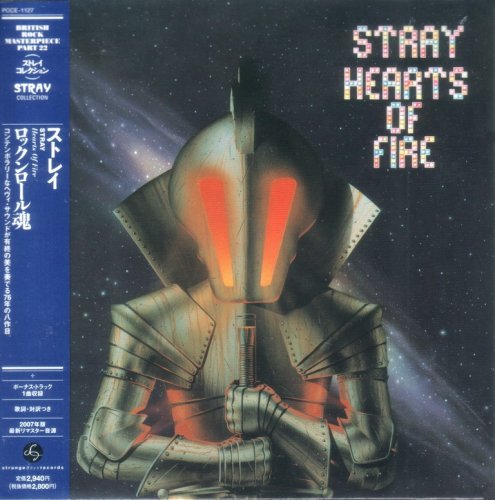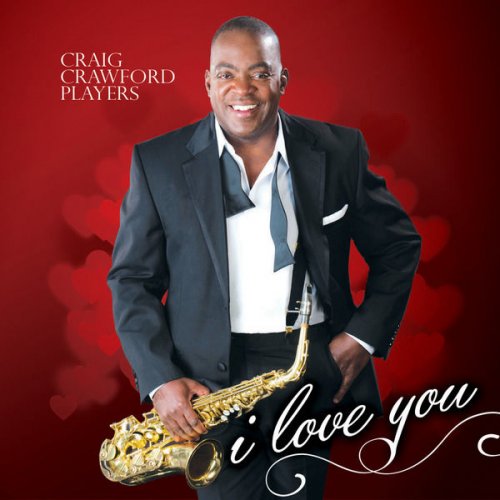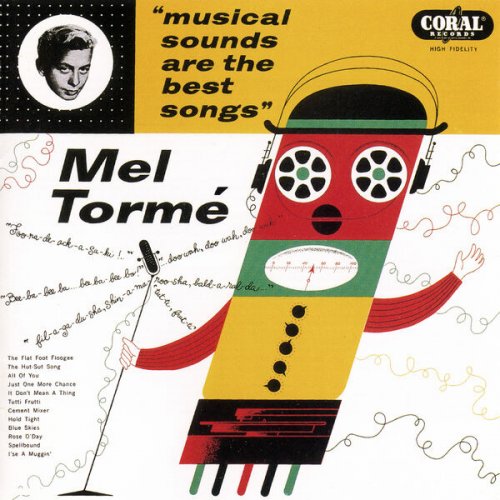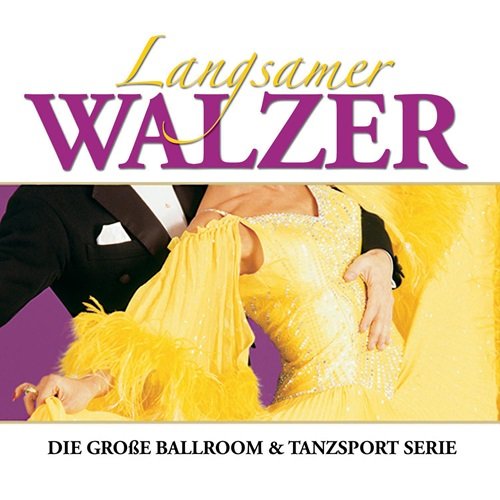Stray - Hearts Of Fire (1976) {2007, Japanese Reissue}

Artist: Stray
Title: Hearts Of Fire
Year Of Release: 1976 / 2007
Label: Strange Days Records / Universal Music K.K. #POCE-1127
Genre: Rock
Quality: EAC Rip -> FLAC (Img+Cue, Log) / MP3 CBR320
Total Time: 00:45:56
Total Size: 307 / 116 Mb (Covers)
WebSite: Album Preview
Title: Hearts Of Fire
Year Of Release: 1976 / 2007
Label: Strange Days Records / Universal Music K.K. #POCE-1127
Genre: Rock
Quality: EAC Rip -> FLAC (Img+Cue, Log) / MP3 CBR320
Total Time: 00:45:56
Total Size: 307 / 116 Mb (Covers)
WebSite: Album Preview
Stray is an English hard rock band formed in 1966. Vocalist Steve Gadd (born Stephen Gadd, 27 April 1952, Shepherd's Bush, West London), guitarist Del Bromham (born Derek Roy Bromham, 25 November 1951, Acton, West London), bass player Gary Giles (born Gary Stephen Giles, 23 February 1952, North Kensington, West London) and drummer Steve Crutchley (born 1952) formed the band whilst all were attending the Christopher Wren School in London. Richard "Ritchie" Cole (born 10 November 1951, Shepherd's Bush, West London) replaced Crutchley in 1968. They signed to Transatlantic Records in January 1970.
The group's brand of melodic, hook-laden hard rock proved to be a popular draw on the local club scene during the early 1970s. However the band did not have commercial success with its record releases. At one stage Charlie Kray (brother of the Kray twins Ronnie and Reggie), was their manager. Gadd left the band in 1975 due to artistic differences and was replaced on vocals by Pete Dyer. The group's early musical style consisted of blues rock, acid rock and psychedelic rock. They then went on to join the hard rock and progressive rock movement.
The band served as the rhythm section alongside a string orchestra for the 1975 Jimmy Helms Pye LP, Songs I Sing. The original Stray finally dissolved in 1977, although Bromham later continued to play in various resurrected versions of the project well into the 2000s. By the 2010s the band had a settled lineup again, as well as Del Bromham, Pete Dyer returned and Stuart Uren (bass) and Karl Randall (drums) were regularly gigging as Stray. In November 2016, the band hosted a 50th Anniversary celebration concert (featuring all original members) at a sold-out London Borderline.
In 2019, Colin Kempster replaced Stuart Uren as permanent bassist and, for live gigs, the band was also joined by Simon Rinaldo on keyboards. After successful concerts in late 2019 and an acclaimed set at the annual Giants of Rock Festival in Minehead, Stray set out on a full joint headlining tour with Ken Pustelnik’s Groundhogs in February and March in 2020.
In 2003, Stray were the support band to Iron Maiden on several of their European dates on the Dance of Death World Tour 2003-2004. These included dates in Spain, Portugal, Poland and France. There are two other Iron Maiden connections to Stray. "All in Your Mind" from Stray's 1970 debut album was covered by Iron Maiden and was included on the 1995 reissue of No Prayer for the Dying, and Maiden bassist Steve Harris's daughter Lauren has covered "Come On Over".
From late 2006 until early 2007, the band's back catalogue of eight studio albums issued originally during the 1970s, were re-released by the UK based Sanctuary Records in compact disc format. The new releases were remastered and had bonus tracks culled from single B-sides, studio outtakes and BBC broadcast sessions.
English rockers Stray had managed to regain some of their lost mojo with a gutsy seventh album called Houdini, and with new singer Pete Dyer now more firmly and confidently ensconced within their lineup, fans had every reason to expect similarly high dividends would be paid by their eighth studio platter, Hearts of Fire, when it was released at the tail-end of 1976. Alas, while the record certainly offered more of the same, groovy hard rock with occasional detours into questionable semi- disco-ey funk as its predecessor, it was in no way capable of revitalizing Stray's career. Especially at a time when even the biggest names in classic '70s hard rock were struggling to fend off the assaults of Johnny Rotten and co., leaving one feeling like album opener "Buying Time," with its lopsided strut reminiscent of Mark III Deep Purple, was truly acting out its title. In this regard, it certainly got no help from "Knocking at Your Door," featuring the aforementioned disco elements, nor the wistful folk-rock of "You Went Away," or the white man robo-funk of "I Wanna Be Free" (prescient of the Alan Parsons Project's "Games People Play"). "Mister Wind" closed out side one on a heavier, gloomier note, and "Live Wire" kicked off side two with a muscular display of unrestrained power that carried on into surprisingly heavy follow-up "Take a Life." Next, "Lonely Road" slowed down the pace, but heightened the still boiling intensity, and the more approachable "Lady" offered a final accessible reprieve before the growling grooves of "One Night in Texas" concluded the Hearts of Fire album with a high-decibel melding of Status Quo power boogie and Thin Lizzy twin guitar harmonies. Unfortunately, Pye Records' promotional negligence wasn't about to help Stray weather the musical revolution instigated by punk rock, and regardless of this album's predominantly strong material and a helpful U.K. tour in support of Rush, Stray would be playing their farewell show by December of 1977.
The group's brand of melodic, hook-laden hard rock proved to be a popular draw on the local club scene during the early 1970s. However the band did not have commercial success with its record releases. At one stage Charlie Kray (brother of the Kray twins Ronnie and Reggie), was their manager. Gadd left the band in 1975 due to artistic differences and was replaced on vocals by Pete Dyer. The group's early musical style consisted of blues rock, acid rock and psychedelic rock. They then went on to join the hard rock and progressive rock movement.
The band served as the rhythm section alongside a string orchestra for the 1975 Jimmy Helms Pye LP, Songs I Sing. The original Stray finally dissolved in 1977, although Bromham later continued to play in various resurrected versions of the project well into the 2000s. By the 2010s the band had a settled lineup again, as well as Del Bromham, Pete Dyer returned and Stuart Uren (bass) and Karl Randall (drums) were regularly gigging as Stray. In November 2016, the band hosted a 50th Anniversary celebration concert (featuring all original members) at a sold-out London Borderline.
In 2019, Colin Kempster replaced Stuart Uren as permanent bassist and, for live gigs, the band was also joined by Simon Rinaldo on keyboards. After successful concerts in late 2019 and an acclaimed set at the annual Giants of Rock Festival in Minehead, Stray set out on a full joint headlining tour with Ken Pustelnik’s Groundhogs in February and March in 2020.
In 2003, Stray were the support band to Iron Maiden on several of their European dates on the Dance of Death World Tour 2003-2004. These included dates in Spain, Portugal, Poland and France. There are two other Iron Maiden connections to Stray. "All in Your Mind" from Stray's 1970 debut album was covered by Iron Maiden and was included on the 1995 reissue of No Prayer for the Dying, and Maiden bassist Steve Harris's daughter Lauren has covered "Come On Over".
From late 2006 until early 2007, the band's back catalogue of eight studio albums issued originally during the 1970s, were re-released by the UK based Sanctuary Records in compact disc format. The new releases were remastered and had bonus tracks culled from single B-sides, studio outtakes and BBC broadcast sessions.
~ Wiki
English rockers Stray had managed to regain some of their lost mojo with a gutsy seventh album called Houdini, and with new singer Pete Dyer now more firmly and confidently ensconced within their lineup, fans had every reason to expect similarly high dividends would be paid by their eighth studio platter, Hearts of Fire, when it was released at the tail-end of 1976. Alas, while the record certainly offered more of the same, groovy hard rock with occasional detours into questionable semi- disco-ey funk as its predecessor, it was in no way capable of revitalizing Stray's career. Especially at a time when even the biggest names in classic '70s hard rock were struggling to fend off the assaults of Johnny Rotten and co., leaving one feeling like album opener "Buying Time," with its lopsided strut reminiscent of Mark III Deep Purple, was truly acting out its title. In this regard, it certainly got no help from "Knocking at Your Door," featuring the aforementioned disco elements, nor the wistful folk-rock of "You Went Away," or the white man robo-funk of "I Wanna Be Free" (prescient of the Alan Parsons Project's "Games People Play"). "Mister Wind" closed out side one on a heavier, gloomier note, and "Live Wire" kicked off side two with a muscular display of unrestrained power that carried on into surprisingly heavy follow-up "Take a Life." Next, "Lonely Road" slowed down the pace, but heightened the still boiling intensity, and the more approachable "Lady" offered a final accessible reprieve before the growling grooves of "One Night in Texas" concluded the Hearts of Fire album with a high-decibel melding of Status Quo power boogie and Thin Lizzy twin guitar harmonies. Unfortunately, Pye Records' promotional negligence wasn't about to help Stray weather the musical revolution instigated by punk rock, and regardless of this album's predominantly strong material and a helpful U.K. tour in support of Rush, Stray would be playing their farewell show by December of 1977.
~ Eduardo Rivadavia, All Music
Track List:
01. Buying Time [0:04:29.40]
02. Knocking At Your Door [0:03:32.43]
03. You Went Away [0:03:40.71]
04. I Wanna Be Free [0:04:57.26]
05. Mister Wind [0:05:20.61]
06. Live Wire [0:04:35.19]
07. Take A Life [0:03:15.69]
08. Lonely Road [0:03:41.14]
09. Lady [0:03:32.46]
10. One Night In Texas [0:06:13.22]
11. Johnny [0:02:37.21]
***************





![Keyvan Chemirani - Tales of Nar (2026) [Hi-Res] Keyvan Chemirani - Tales of Nar (2026) [Hi-Res]](https://img.israbox.com/img/2026-02/05/2f0crjk19rw3dp7xd5h38ofxr.jpg)


